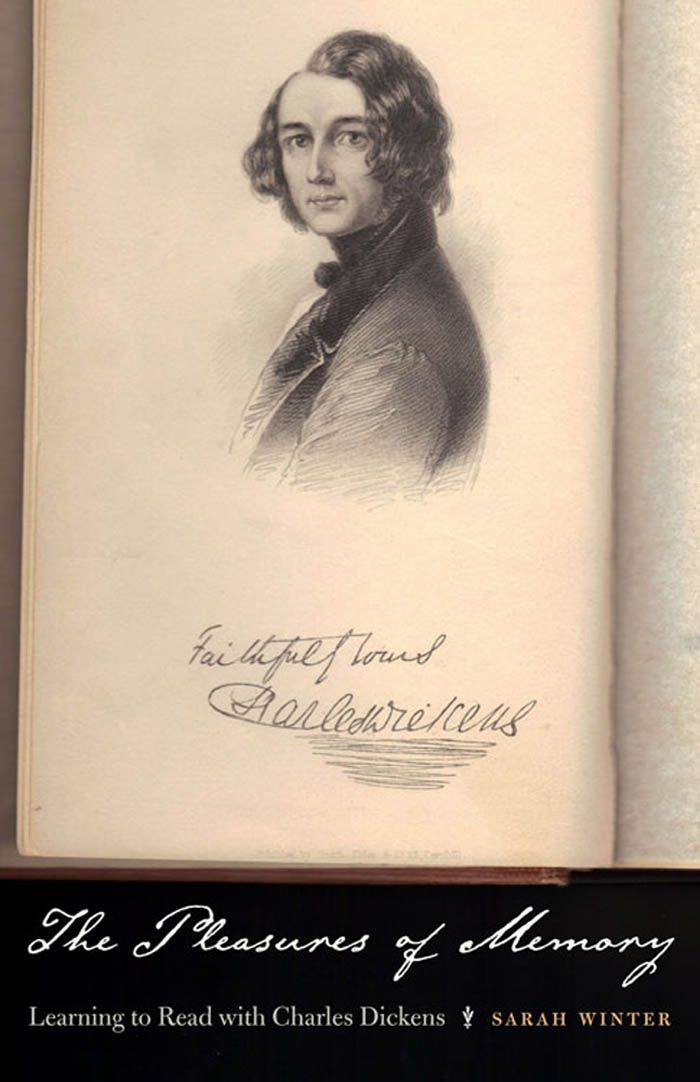The Pleasures of Memory
Learning to Read with Charles Dickens

This book can be opened with

What are the sources of the commonly held presumption that reading literature should make people more just, humane, and sophisticated? Rendering literary history responsive to the cultural histories of reading, publishing, and education, The Pleasures of Memory illuminates the ways in which Dickens’s serial fiction shaped not only the popular practice of reading for pleasure and instruction but also the school subject we now know as “English.”
Winter shows how Dickens’s serial fiction instigated specific reading practices by reworking the conventions of religious didactic tracts from which most Victorians learned to read. Incorporating an influential associationist psychology of learning founded on the cumulative functioning of memory, Dickens’s serial novels consistently led readers to reflect on their reading as a form of shared experience.
Dickens’s celebrity authorship, Winter argues, represented both a successful marketing program for popular fiction and a cultural politics addressed to a politically unaffiliated, social-activist Victorian readership. As late-nineteenth century educational reforms consolidated British and American readers into “mass” populations served by state school systems, Dickens’s beloved novels came to embody the socially inclusive and humanizing goals of democratic education.
It is well known that Dickens established an 'imagined community' founded on his own writing and authorial presence; in her intriguing book, Sarah Winter reveals how he did it. Analyzing the relation between serialization, reading, and memory, and detailing the extraordinary means by which Dickens made himself an institution by appearing to subvert the very nature of institutions, Winter shows how Dickens installed his works, his memories, his authorial presence, and perhaps most influentially, his method of publication—seriality itself--at the center of our collective modern consciousness.——Audrey Jaffe, University of Toronto
A fine contribution to the sociology of literature . . . Highly Recommended.——Choice
“The Pleasures of Memory brings a welcome flash of insight to the centuries-old and much-rehashed argument regarding Dickens’s politics. The present critical moment has seen the likes of William Flesch, Sharon Marcus, and Nicholas Dames rethink ‘reading’ in ingeniously new ways. Winter accomplishes the feat of throwing an equally original and yet persuasively commonsensical hat into the ring. She reads Dickens’s serial novels from Pickwick through Our Mutual Friend to show how overtly they thematized the mode of their reception in associationist terms as collective or cultural memory. In doing so, she argues (brilliantly, to my mind), that producing serial novels was a political project. Dickens saw popular literature as the means of universal public education.”——Nancy Armstrong, Duke University
“The Pleasures of Memory is the book on Dickens we have been waiting for. It is also a major study of the Victorian public sphere. Sarah Winter shows how Dickensian serial fiction—the most potent of nineteenth-century new media— cultivated a field of democratic thinking separate from political institutions. Authoritative, lucid, and wide-ranging, this is the most convincing analysis of literature’s social function I’ve read in recent years.”——Ian Duncan, University of California, Berkeley

